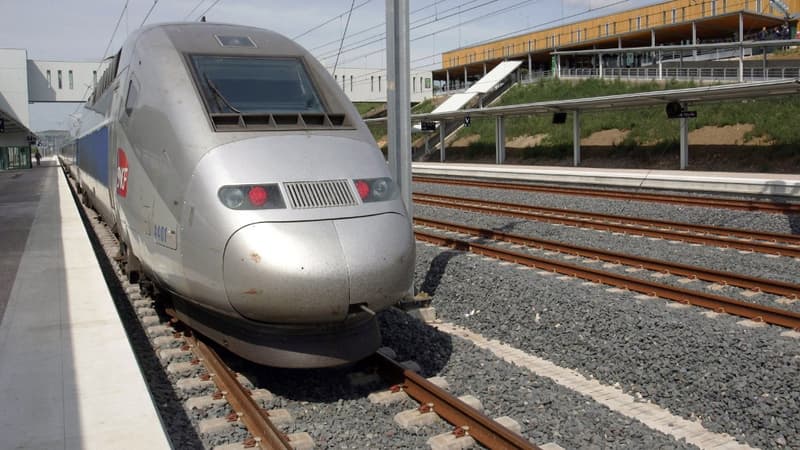The ax fell. SNCF Réseau has noted a very significant increase in the price of the energy billed to its customers, that is, to the rail operators. Something unprecedented since these prices will go from 56 euros in 2021 to 473.5 euros per megawatt hour this year, a jump of 745%. What completely disrupted the economic model of these actors.
For the latter, it is time for arbitration. For SNCF Voyageurs (the entity that manages the trains), thanks to good electricity coverage (with advance purchases), the energy bill shot up “only” 13%.
The operator has chosen to increase its prices but moderately: +5% on average since the beginning of the year, and will toughen the conditions for changing and refunding tickets on February 7.
Trenitalia: the choice to cut at the margins
In Trenitalia, present in the high-speed market in France for two years between Paris, Lyon and Milan, on the contrary, it is not about raising prices as the company seeks to gain market share and fill its trains. The Italian operator is gritting its teeth and will therefore reduce its margins.
“Indeed, the energy crisis is a delicate point that affects the entire railway sector. We hope that there will be aid that will alleviate the entire railway sector affected by this energy crisis”, comments the president of Trenitalia France, Roberto Rinaudo. , who was the guest of BFM Business this Thursday, February 2.
It remains to be seen if the model will hold up with very aggressive pricing, sky-high costs, tolls (for the right to travel on French rails) considered expensive, and filling to be improved.
Last December, Trenitalia granted an occupancy rate on the Paris-Lyon section of only 50%, while the crucial business clientele is still not fully complete (20% of total travelers, 20% of customers who also travel both for leisure and for work).
“Unsustainable” for the transport of goods
As in the SNCF, the search for savings will be the rule, for example, eco driving trains (take advantage of the unevenness of the route but it will be necessary to train the drivers), or even eco-parking (cut off the power at the dock).
On the side of the actors in rail freight (freight) there is a bit of panic. The sector, already very fragile, does not see how it could support such an increase in the electricity bill without aid (which for these operators goes from 112 to 473 euros per megawatt hour).
The 4F Alliance, which brings together all the players in the sector in France, believes that companies “do not have visibility over the aid they are requesting to face the explosion in electricity prices, whose unsustainability jeopardizes the continuity of their activity – especially for the little ones.
A cap of 180 euros per megawatt hour
The lobby denounces above all the silence of the government while the transport of goods by rail is at the center of the ecological transition in the transport of goods. The sector has two demands: a cap on the price of electricity at 180 euros per megawatt hour and the adaptation of the current toll aid system so that the State pays for all merchandise tolls billed by SNCF Réseau to the operators.
The danger pointed out by the sector does not only concern railway actors, since the entire logistics chain is affected by the domino effect, “including road carriers that use combined rail-road transport, who run the risk of suffering an increase of costs that oscillates between 15 and 20%”.
“It is a pillar of the energy transition of our country that is directly and seriously threatened (…) the entire economic balance of the railway is weakened while massive aid is given to the road sector. It’s absurd!” laments Alexandre Gallo, president of Afra, the French Railway Association, quoted by railway life.
Remember that the Climate Law of August 22, 2021 provides for the doubling of the modal share of rail freight transport to 18% in 2030. In 2021 it was 10.7%.
Source: BFM TV


